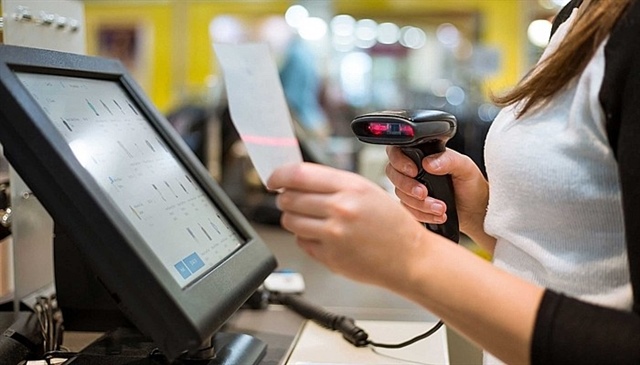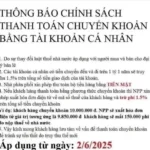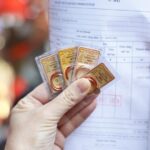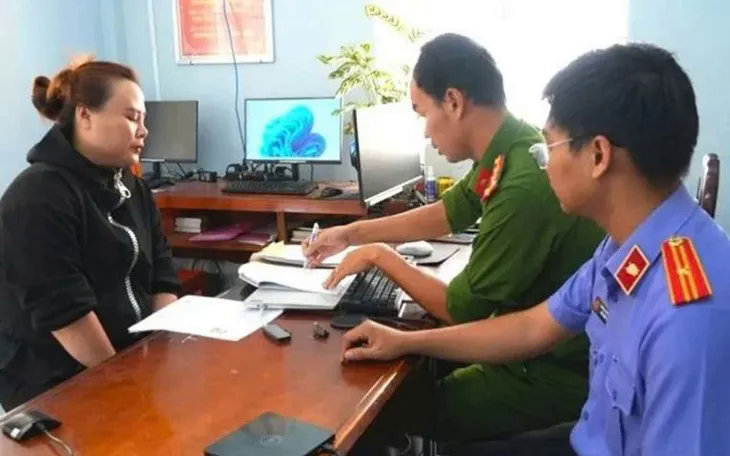At the online conference on June 5–6 to provide support, guidance, and address concerns regarding the use of electronic invoices generated from cash registers, a representative from a pet accessory business in Hai Phong shared that the cost of issuing electronic invoices was high, and revenue could not cover the expense.
Is it necessary to issue an invoice for an order worth only VND 1,000?
Specifically, this pet accessory business mainly trades on e-commerce platforms, and some of their products are priced as low as VND 1,000–2,000.
“The order value is small, but the cost of issuing an invoice is relatively high compared to the revenue. There are many orders below VND 10,000, and some are even just VND 1,000. For such orders, issuing invoices incurs significant costs,” shared the representative of the pet accessory business.
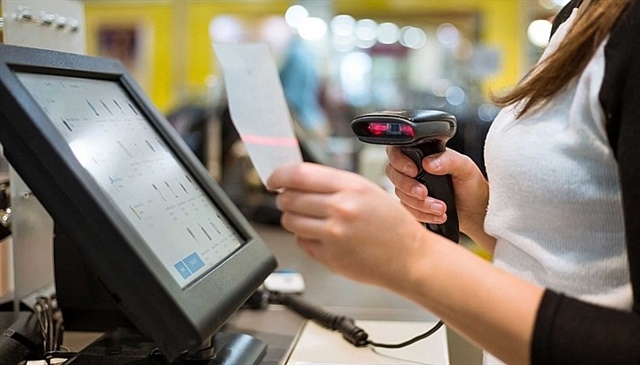
Illustrative image: Some businesses face difficulties in transitioning to electronic invoices. |
Additionally, the business owner raised a question regarding tax calculations for returned orders purchased through e-commerce platforms.
“If an invoice is issued on December 28, 2025, but the buyer returns the goods in early 2026, how will the tax adjustment be handled since it is already a new fiscal year?” The pet accessory business owner inquired, seeking appropriate guidance.
In response to the inquiry, a leader from the Policy and International Taxation Department (Tax Department) stated that there is currently no regulation allowing consolidated invoices. Moreover, businesses must issue invoices at the time of providing goods or services, regardless of whether payment has been received.
Regarding returns and cancellations, these are among the provisions outlined in the draft decree that the Ministry of Finance is submitting to the Government. Concerning tax obligations on e-commerce platforms, at the end of 2024, Law No. 56—the Law amending nine laws (including the Law on Tax Administration)—was promulgated. It stipulates that e-commerce platforms with direct ordering functions will declare and pay taxes on behalf of individual business households.
According to the plan, the decree submitted by the Ministry of Finance is expected to be issued in June, providing clear regulations on tax deductions, the responsibility of the platform in making adjustments, declarations, and tax payments in cases of transaction cancellations. After the decree is issued, the Tax Department will provide detailed guidance to business households.
How to obtain invoices for purchasing second-hand goods?
Additionally, at the conference, Banh Bao Thuy Do, a business in District 1, Ho Chi Minh City, inquired about having multiple business locations but only one tax code. They wanted to know if they needed to apply for additional tax codes.
In response, the tax authority representative clarified that the business did not need to separate tax codes and could use one common code for all business locations, with unified tax payments.
Meanwhile, an electronics business household in Binh Thanh District, Ho Chi Minh City, shared that they often purchase second-hand goods without proper documentation, making it challenging to declare input VAT when selling without a legal invoice.
On this issue, the Tax Department representative stated that if the business household purchases second-hand goods directly from individuals for resale, according to the law, these individuals are not considered business entities and are not subject to tax declarations. Therefore, they cannot provide invoices.
“The business household can record the contract and related documents regarding the purchase of these products,” the Tax Department representative suggested.
The Tax Department also mentioned that purchasing second-hand goods and creating a purchase list is a suitable method. However, for the purchase of certain special commodities stipulated in Decree 70, the business household must clearly specify the characteristics and types of these commodities in the list to serve as a basis for proving the legality of the purchase.
Another concern raised was the transition between the fixed-rate and declaration methods. Some business households shared that they had previously purchased goods without obtaining invoices, and now they have inventory without input VAT documents. If they switch to the declaration method, can they use the inventory list as a legal basis?
The tax authority emphasized that inventory lists can be used to prove legality if the business households provide a clear list with complete information about the goods, purchase dates, and sources, and if the sources are not illegal. However, this needs to be assessed on a case-by-case basis.
MINH TRUC
– 19:18 06/08/2025
Declined Incoming Wire Transfers: Tax Evasion Scheme or Billing Blunder?
The latest news roundup: Widespread rejection of transfers sparks curiosity; the Deputy Minister of Construction speaks on abolishing building permits; the US monitors the currency of nine nations; a bustling Hanoi business street falls silent; tax crackdown on over 25,000 online businesses; and over 111,000 enterprises suddenly go ‘missing’. Intriguing developments, indeed!
The Once Bustling Hanoi Business District is Now Deserted.
In recent times, bustling business streets in Hanoi have fallen unusually quiet. Many businesses have temporarily shut down, not due to a lack of customers, but as a response to the new tax policies and mandatory requirements for electronic invoices. Additionally, the city’s crackdown on counterfeit goods has prompted traders to swiftly standardize their operations.
The Beauty, Food, and Pharma Industries Under the E-commerce Lens: A Crackdown on Counterfeit Goods.
The health and beauty industry is under the regulatory microscope, with cosmetic products, supplements, and medications becoming the “focus” of tightened controls on e-commerce platforms.

